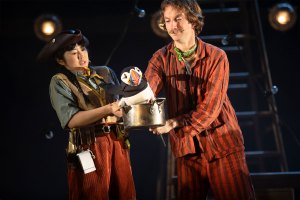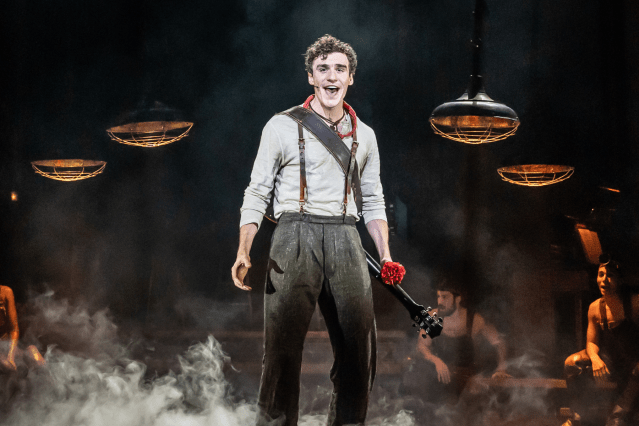Edge of the Land (tour)
The sea has a special relationship with the coast of eastern England.
It brings, gives – and takes away. Some of the things, including
people, which it snatches never return. Others are beached far down
the coast. From earliest times humans have tried to preserve the land
from the waves. All such attempts ultimately fail.
Alan Franks‘ play is dominated by the sea. Its characters live
beside it; some have lost family to it. The action spans three
decades, from the austerity-constrained Fifties to the onset of the
go-grabbing Eighties. When we first meet her, Miriam is a teenager
from a fishing family whose relationship with undergraduate Billy
disintegrates even before she falls pregnant.
Having an illegitimate child was a shameful matter in 1953. The
mother-to-be would be packed off to relations or an institution at
the other end of the country and never allowed to forget that she had
brought shame on her whole family. Many children were taken away soon
after birth for adoption. Which is what happens to Miriam and her
daughter.
Fast forward to 1979. Miriam has been trying to trace Miranda,
without success. Billy has becomes one of those punditing presenters
of television heritage programmes. Miranda, herself now working in
media land, with her sights set on a not-too-interested colleague, has
been using changes in legislation to track down her birth mother.
Happy ending, then? No, not quite. There’s more to this play than its
plot. Just as the tide comes in with a succession of waves, rippling
the sand and obliterating tracks in it, so the short scenes overlap
in time and emphasis.
Four players take all the parts – Anstey Thomas as the older
Miriam, her mother, aunt and a variety of would-be do-gooders,
Eleanor Harley as the young Miriam and Miranda, Simon Bubb as the
young Billy and Miriam’s simple cousin Roger and Patrick Knox as
Billy’s corrupt, social-climbing father, not-so-good-doer doctors and
vicars, then (chillingly) as Billy made good – in his father’s image
air-brushed for the Thatcher era.
If you’ve never seen an Ivan Cutting production for this tight-knit
touring company (Eastern Angles), whose stagings rely less on scenic values than on
speech, movement and the creation of an almost-indefinable
atmosphere, this is a good place to start. You’ll need to use your
ears, instinct and intelligence as well as your eyes. But isn’t that
what theatre’s all about?
– Anne Morley-Priestman (reviewed at Margaretting Village Hall)












